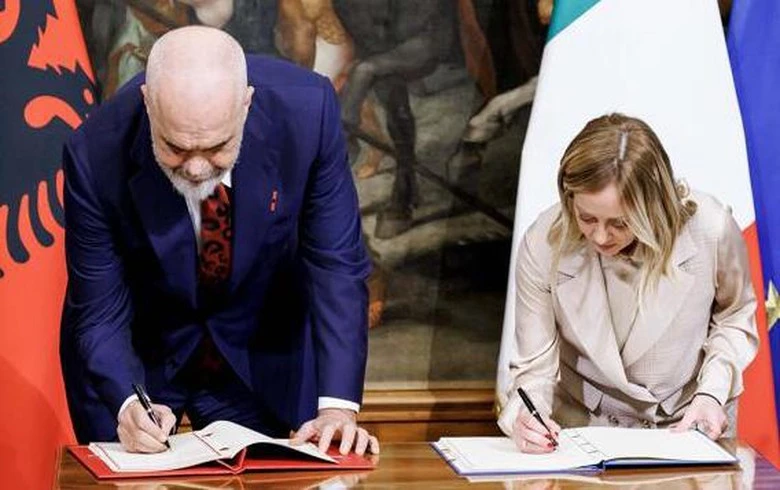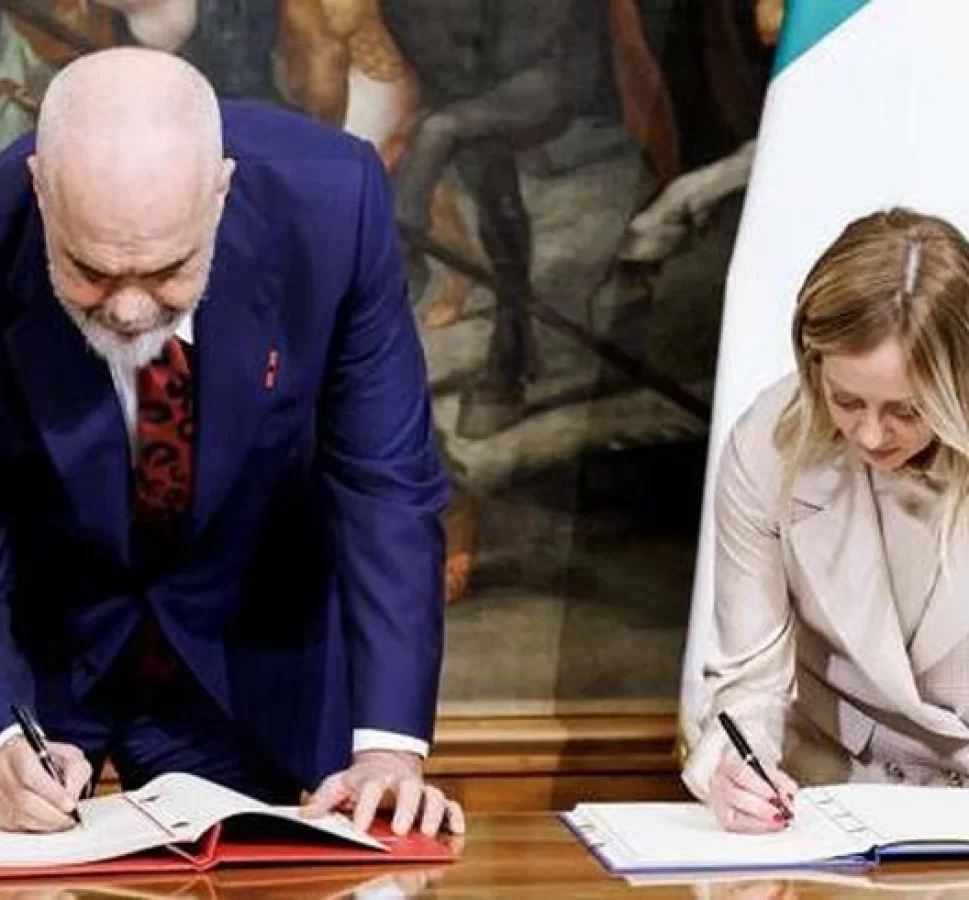
Rights groups criticise agreement that could see up to 36,000 people a year held in Italian-run asylum-processing centres.
Albania’s Parliament has approved a deal signed with Italy that will see authorities hold thousands of asylum seekers rescued in international waters while their applications are processed, drawing criticism from human rights groups.
Under the agreement, Albania would hold up to 3,000 migrants and refugees at any one time in two Italian-run processing centres located near the Albanian port of Shengjin for periods of about a month. It is expected that up to 36,000 people a year could be sent to the country.
The agreement has been denounced by rights groups with the International Rescue Committee describing it as “dehumanising“. Amnesty International condemned it as “illegal and unworkable“.
The deal, approved by Albania’s Constitutional Court last month, was backed by 77 lawmakers in the 140-seat parliament, dominated by Prime Minister Edi Rama‘s Socialist Party.
Conservative opposition MPs boycotted the vote, lambasting the government over a lack of transparency and saying the deal was an “irresponsible and dangerous act for national security”.
Albania’s parliamentary approval came weeks after Italian lawmakers also voted in favour of the agreement.
The Balkan country’s president will issue a decree as the final step to implement the deal.
European Commission approval
The agreement was signed in November between Rama and Italian Prime Minister Giorgia Meloni. It was endorsed by European Commission President Ursula von der Leyen.
Meloni said she expects the two processing centres, which would be fully run by Italy, to become operational by this spring.
Italy would remain legally responsible for the asylum seekers throughout the process and would organise their deportations from Albania if they are refused international protection.
Rama said Albania stands beside Meloni in gratitude on behalf of Albanians who found refuge in Italy and “escaped hell and imagined a better life” after the collapse of communism in the 1990s.
The number of migrants and refugees arriving in Italy by boat so far in 2024 has nearly doubled to about 160,000 compared with the same period a year ago.






